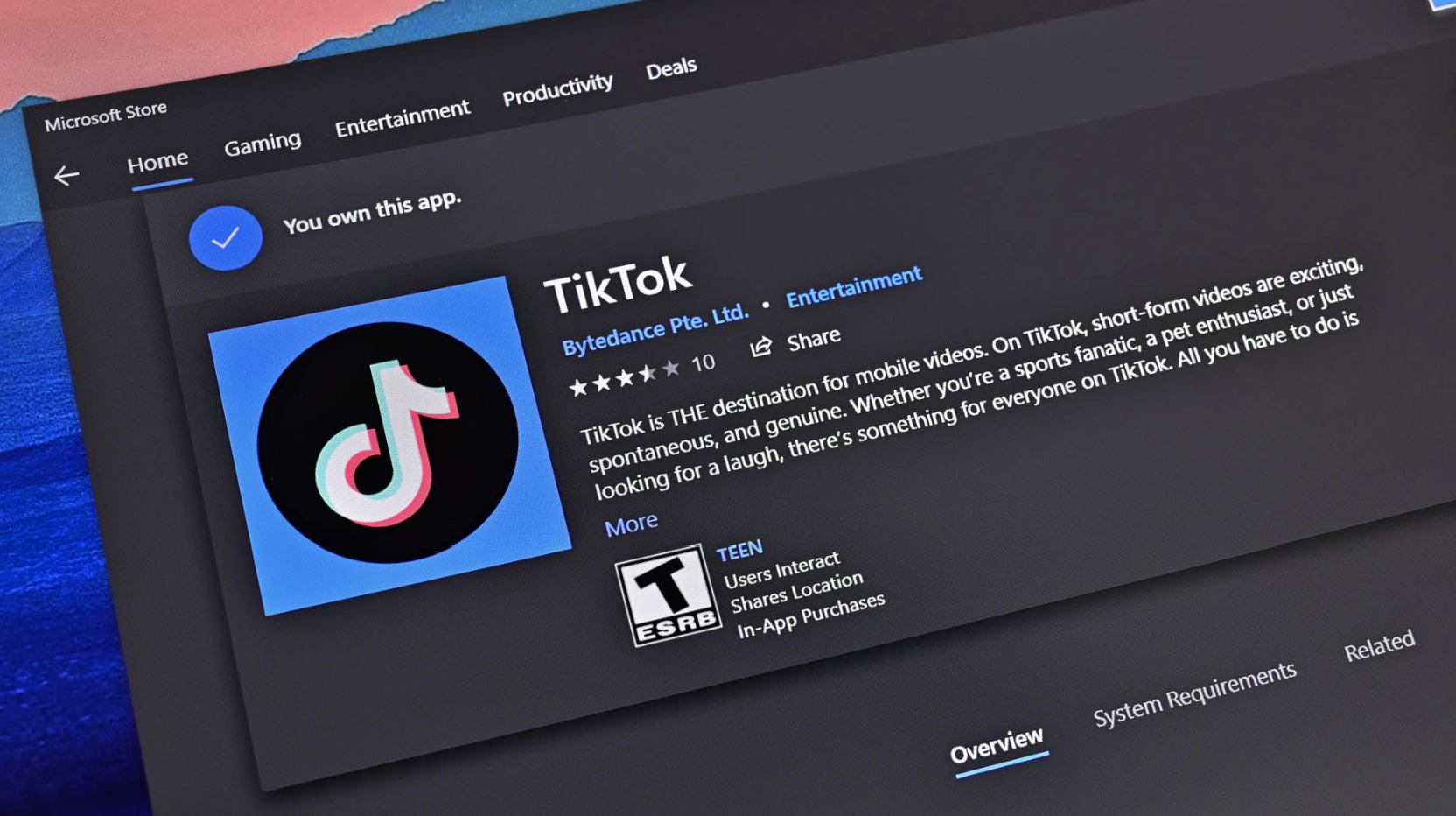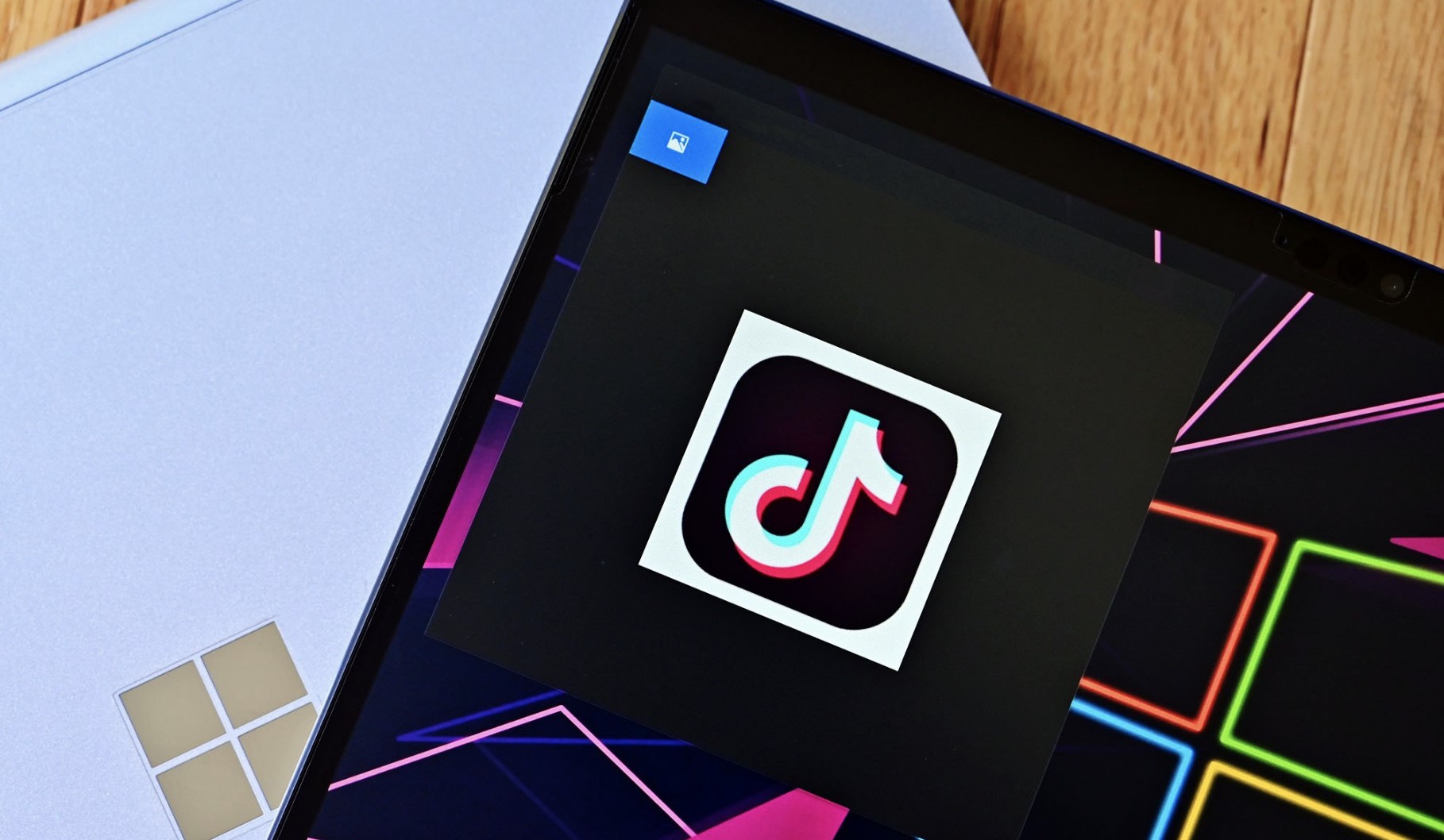TikTok banned? Microsoft might get another opportunity to buy the social media firm, if this new U.S. law passes (Updated)
The U.S. wants to ban TikTok, again.

What you need to know
- In August 2020, Microsoft had a strange, short-lived opportunity to buy TikTok, after parent company ByteDance was coerced into selling its U.S. operations by the Trump administration.
- Microsoft's deal to buy TikTok quite quickly fell through. Oracle was chosen instead, however that never happened either.
- Once Joe Biden took over as President, calls for ByteDance to divest TikTok waned. Until now.
- Now, "more than a dozen" U.S. lawmakers, both Republican and Democrat, have produced a bill that would once again force ByteDance to force divestiture of TikTok to a U.S. tech company, over "national security concerns."
Back in 2020, Microsoft had a strange, unexpected opportunity to buy TikTok, which has become one of the world's biggest social platforms in history.
TikTok is a short-form video sharing platform, although it has evolved into a live streaming platform and photo sharing network, mirroring Instagram and other similar products. TikTok has even been cited as eroding Google's search dominance, as younger generations opt for social search queries instead of more traditional avenues.
TikTok is owned by ByteDance, a Chinese company. The app is often conflated with the Chinese Communist Party, and cited in national security discourse in the West. Fair or not, TikTok's vast data dragnet and questionable algorithms have led to a variety of privacy and national security concerns across the entire Western hemisphere. Various Western governments have banned their direct employees from using the app, owing to its tracker-heavy and privacy-shy design. TikTok has been blamed for spreading harmful conspiracy theories and abusive content, while not doing enough to protect minors on its platform.
At the same time, it's enjoyed by hundreds of millions of users every month across the globe. Many have used it to create small businesses, make friends and network, or even become globally recognized celebrities. But contention remains, especially in the United States.
Reuters is reporting that U.S. lawmakers are, once again, floating a push to force ByteDance to divest TikTok. Back in 2020, the Trump administration coerced ByteDance to sell TikTok, which led to Microsoft, Oracle, and Walmart of all companies putting in bids. Eventually, the consortium of Walmart and Oracle almost won out, but Joe Biden's win in the 2020 election led for calls for divestiture to fade away. But now, they're back.
A group of over a dozen U.S. lawmakers comprised of both Republicans and Democrats have proposed a bill that would force ByteDance to divest TikTok to a U.S. company. One of the bill's sponsors, Rep. Mike Gallagher said, "This is my message to TikTok: break up with the Chinese Communist Party or lose access to your American users. America’s foremost adversary has no business controlling a dominant media platform in the United States." The bill would give TikTok six months to divest to a U.S. company, or face a total ban. It would become illegal for the Microsoft Store on Windows 11, the iOS App Store, or Google Play to host app listings for TikTok after that date as well.
The bill might even have legs, since a White House spokesperson is reported to have spoken positively about the legislative proposal, noting that the bill is an "important and welcome step," while emphasizing that the White House will work with Congress to flesh out the bill even further.
Get the Windows Central Newsletter
All the latest news, reviews, and guides for Windows and Xbox diehards.
Update (March 8, 2024): TikTok hits back
Interestingly, TikTok seems to be taking this bill pretty seriously. It has started sending out notifications to some users telling them to contact their congress representatives to prevent the bill from moving ahead.
According to Politico reporter Olivia Beavers, the notifications have "backfired" with U.S. politicians, with some who were on the fence now fully believing in the narrative that TikTok can use its clout to manipulate public opinion, if it so chooses to do so.
Looks like TikTok is going on the offensive, asking its users to call members on the E&C committee to “stop a TikTok shutdown” https://t.co/WmW5ciF6Mt pic.twitter.com/5XzD8nNesaMarch 7, 2024
The bipartisan committee overseeing the legislation voted unanimously to put it to a House vote next week. We could actually see TikTok divested in the United States, or perhaps even shut down entirely — although some legal opinions seem to suggest that a total shutdown of TikTok would amount to a violation of the first amendment and free expression laws. Representatives may be called to argue in court how TikTok amounts to a "national security concern," which is perhaps one of the few legal avenues the bill might have to circumvent first amendment rights.
🚨 The @HouseCommerce Committee just voted 50-0 to force TikTok to sever their ties with the Chinese Communist Party. I will bring this critical national security bill to the House floor for a vote next week.March 7, 2024
Another chance for Microsoftiktok?

The United States administration of both parties have scrutinized TikTok heavily from a variety of angles over the years, with differing levels of aggression. President Joe Biden famously "joined" TikTok last month, despite the fact that it has lent verbal backing to bills like the above that could curtail or even ban TikTok's operations in the United States.
TikTok for its part has always claimed that it doesn't share U.S. user data with the Chinese authorities, although it seems there's no real way to prove whether or not they do.
In any case, Microsoft was one of the first companies to line up with attempts to buy TikTok back in 2020, although for whatever reason, the deal didn't pan out. TikTok's revenue globally is somewhere in the region of $84 billion according to reports. Microsoft's current "cash on hand" is roughly $81 billion according to MacroTrends, with the Activision-Blizzard acquisition no doubt putting a big dent in its previous milestones. It's hard to get an estimate on how much TikTok's U.S. operation might be worth, but it's easily in the multiple tens of billions.
TikTok would be a significant boon to Microsoft, even if they were only able to purchase the rights to the U.S. version of the app. It would give Microsoft a "cool" social network to rival the likes of YouTube and Instagram, while also challenging Google in search and ad networking. It could even become a vehicle for promoting Xbox and A.I. services as well. Microsoft could also integrate it into their primary social network, LinkedIn, which has become a huge pillar for the company in recent years.
Either way, it's unclear how attempts to ban TikTok outright would actually function, with rights groups arguing that a ban on TikTok amounts to a violation of the first amendment. Given how much bigger TikTok is in 2024 than it was in 2020, you have to wonder if Microsoft could even afford to pull off such an acquisition, or if they'd even have the stomach for it.
Maybe it would be worth it. Stranger things have happened, no?

Jez Corden is the Executive Editor at Windows Central, focusing primarily on all things Xbox and gaming. Jez is known for breaking exclusive news and analysis as relates to the Microsoft ecosystem while being powered by tea. Follow on Twitter (X) and Threads, and listen to his XB2 Podcast, all about, you guessed it, Xbox!
-
fjtorres5591 The only way MS buying Tik Tok makes sense is if they want to combine it with BING and the AD server business to spin off and get out of advertising which, while it makes decent money (by MS standards) has neither the margins nor the predictability MS prefers.Reply
A somewhat better play would be to buy Paramount *and* WBD which would neither require massive cash (just stock and assuming debt) and are in an upfront capital-hungry business and own massive amounts of IP (STAR TREK, DC, classic movie libraries), and are consumer focused, much like gaming. And just like ABK are both poorly run with major upside. None of which describes Tik Tok, which is a mess best avoided.
